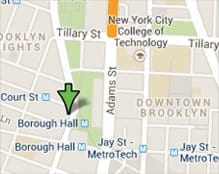What is the difference between a pardon and a commutation?
You may be one of many people in New York with questions about executive clemency after a series of well-publicized cases in the news. The President of the United States, as well as state governors, have the right to show clemency to people convicted of a crime. In other words, if you go to prison after a criminal trial, officials of the executive branch of government at both the state and national levels are able to change the terms of your sentence upon review of your case.
According to the United States Department of Justice, executive clemency usually takes one of two different forms: a pardon or a commuted sentence. Both are similar in that they do not excuse you from wrongdoing or imply innocence on your part, but although they are similar in some ways, they are different in others. If convicted of a crime, you can receive a pardon even after your release from prison. Some people have received pardons years after finishing their sentences, sometimes even after death. A commutation is different in that it shortens the term of your prison sentence and gets you out earlier than expected, meaning that you can only receive a commutation while you are still in prison.
A government executive may choose to grant a pardon to someone who has demonstrated good conduct for a significant period of time following a conviction, whether in prison or out of it, and has accepted the responsibility for the crime. Rather than acknowledging your innocence, a pardon is a show of forgiveness from the granting executive and removes many of the negative consequences (or civil disabilities) of a conviction that may otherwise affect your life after your release from prison.
A commutation reduces your sentence, either in whole or in part. It may also release you from financial obligations included in your sentence, such as fines or restitution. Like a pardon, a commutation does not imply your innocence, and unlike a pardon, a commutation does not remove civil disabilities resulting from your conviction, including restrictions on jury duty, public service, voting, et cetera.
The information in this article is not intended as legal advice but provided for educational purposes only.
Office Location
Neil S. Ruskin
188 Montague Street Suite 900
Brooklyn, NY 11201
Local: (718) 237-1547
Fax: 718-875-4011












